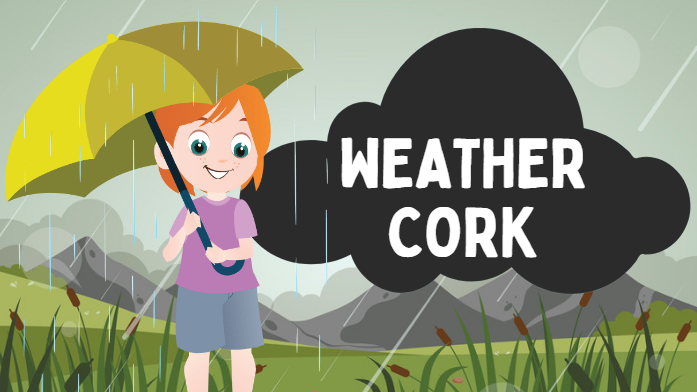Introduction
A key aspect of Cork’s charm is its Weather Cork, which plays a significant role in shaping the city’s character and lifestyle. In this article, we will delve into the various facets of Cork’s weather, providing insights into its seasonal patterns, unique climate features, and tips for navigating the city’s meteorological moods.
Cork’s Climate: An Overview
Weather Cork climate is classified as oceanic (Cfb according to the Köppen climate classification), characterized by mild temperatures and frequent rainfall. Its coastal location in the southern part of Ireland exposes it to the tempering effects of the Atlantic Ocean, resulting in relatively stable and moderate weather year-round.
- Temperatures: Weather Cork experiences mild winters and cool summers. Extreme temperatures are rare, making Cork’s weather relatively predictable and comfortable.
- Rainfall: Rain is a constant companion in Cork, with the city receiving an average of 1,200 mm (47 inches) annually.
- Wind: Coastal winds are a defining feature of Cork’s climate. These winds can be brisk, especially in winter, but they also help moderate temperatures.
Also Read: Met Éireann 5-Day Forecast
Seasonal Weather in Cork
Spring (March to May)
Spring is a delightful time in Weather Cork as the city comes alive with blooming flowers and budding trees. Temperatures gradually rise, ranging from 8°C (46°F) in March to 14°C (57°F) in May.
- Rainfall: Showers are common but less frequent than in winter.
- Highlights: The season is perfect for exploring Cork’s parks and gardens, such as Fitzgerald’s Park, which bursts into vibrant colors.
Summer (June to August)
Summer in Weather Cork is mild and pleasant, with average highs around 16–19°C (61–66°F). The long daylight hours and moderate temperatures make it the ideal season for outdoor activities.
- Rainfall: While summer sees less rainfall compared to other seasons, occasional light showers are still expected.
- Highlights: Popular activities include coastal walks, visiting nearby beaches, and enjoying events like the Cork Midsummer Festival.
Autumn (September to November)
Autumn in Cork is a season of changing colors and cooler temperatures. Average temperatures range from 15°C (59°F) in September to 9°C (48°F) in November.
- Rainfall: Rain becomes more frequent as the season progresses.
- Highlights: The autumn foliage makes this a picturesque time for exploring the city’s countryside and riverside trails.
Winter (December to February)
Winter in Cork is characterized by cool temperatures and frequent rain. Despite this, the city rarely experiences snow, and frost is typically light.
- Highlights: The festive atmosphere during the holiday season, including Christmas markets and events, brings warmth and cheer to the city.
Unique Weather Phenomena in Cork
Cork’s weather is not without its quirks. Some notable phenomena include:
- Mist and Fog: Coastal areas near Cork often experience mist and fog, particularly in the mornings. These conditions add a mystical quality to the city’s landscape.
- Rainbows: Frequent showers and intermittent sunshine create ideal conditions for rainbows, making them a common sight in Cork.
- Storms: Winter storms occasionally bring strong winds and heavy rain, but these are usually short-lived.
How to Prepare for Cork’s Weather
Cork’s unpredictable weather means that preparation is key for both residents and visitors. Here are some tips:
Dress in Layers: The mild but variable weather calls for versatile clothing.
Carry Waterproof Gear: A waterproof jacket and sturdy umbrella are must-haves to deal with sudden rain showers.
Wear Comfortable Footwear: Cork’s cobblestone streets and hilly terrain require comfortable, weather-resistant shoes.
Stay Updated: Check local weather forecasts regularly to plan your activities.
Weather and Lifestyle in Cork
Cork’s weather influences the local lifestyle in many ways:
- Outdoor Activities: The mild climate encourages year-round outdoor pursuits, from hiking in the surrounding hills to exploring the city’s vibrant streets.
- Cultural Events: Many of Cork’s festivals and events are designed to embrace the weather, with indoor and outdoor options ensuring there’s always something to enjoy.
- Cuisine: The abundant rainfall supports agriculture, contributing to the city’s rich culinary scene, which features fresh produce and local seafood.
Best Times to Visit Weather Cork
While Cork is a year-round destination, the best time to visit depends on your preferences:
- For Mild Weather: Late spring and early summer (May to June) offer the most pleasant conditions for outdoor exploration.
- For Festivities: Winter, particularly December, is ideal for experiencing Cork’s festive charm.
- For Scenic Beauty: Autumn is perfect for enjoying the vibrant foliage and picturesque landscapes.
Conclusion
The Weather Cork is an integral part of its identity, shaping the city’s natural beauty, cultural activities, and daily life. Whether you’re wandering through misty mornings, basking in summer sunshine, or embracing a light rain shower, Cork’s weather offers a unique experience that enhances its charm. With a little preparation, you can enjoy all that this captivating city has to offer, no matter the season.


